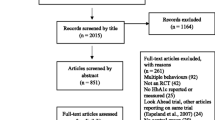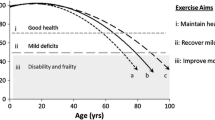Abstract
Objectives
We assess differences in physical activity self-management behavior in association with dietary intake and BMI between the sexes in patients with type 2 diabetes.
Methods
Patients with type 2 diabetes (n = 145) completed a self-administrated questionnaire. Patients were classified into four groups by BMI and dietary intake: non-obesity and non-overeating (NO/NOE); non-obesity and overeating (NO/OE); obesity and non-overeating (O/NOE); obesity and overeating (O/OE). Differences in physical activity self-management behavior between the four groups were determined by the analysis of variance using a Tukey–Kramer post hoc test.
Results
Male O/OE group showed higher HbA1c (p = 0.001) than the other groups. Male NO/OE group had higher steps/day than O/NOE (p = 0.036) and score of “Exercising to stimulate the enjoyment of eating” was higher than O/OE (p = 0.031). Female NO/OE group showed higher HbA1c (p = 0.001) than NO/NOE and O/NOE.
Conclusions
BMI and dietary intake were associated with frequencies of physical activity self-management strategies in men. Self-management behavior peculiar to male NO/OE group is “Exercising to stimulate the enjoyment of eating”. Health professionals should assess sex, BMI, and dietary intake of patients and endeavor to improve individuals’ ability to regulate their caloric balance based on physical activity level.
Similar content being viewed by others
References
The Japan Diabetes Society. Evidence-based practice guideline for the treatment of diabetes in Japan 2013 [in Japanese]. Tokyo: Nankodo; 2013.
American Diabetes Association. (4) Foundations of care: education, nutrition, physical activity, smoking cessation, psychosocial care, and immunization. Diabetes Care. 2015;38:S20–30.
Nakanishi N, Takatorige T, Suzuki K. Daily life activity and risk of developing impaired fasting glucose or type 2 diabetes in middle-aged Japanese men. Diabetologia. 2004;10:1768–75.
Hu G, Eriksson J, Barengo NC, et al. Occupational, commuting, and leisure-time physical activity in relation to total and cardiovascular mortality among Finnish subjects with type 2 diabetes. Circulation. 2004;6:666–73.
Thomas N, Alder E, Leese GP. Barriers to physical activity in patients with diabetes. Postgrad Med J. 2004;943:287–91.
Swift CS, Armstrong JE, Beerman KA, et al. Attitudes and beliefs about exercise among persons with non-insulin-dependent diabetes. Diabetes Educ. 1995;6:533–40.
Resnick HE, Foster GL, Bardsley J, et al. Achievement of American Diabetes Association clinical practice recommendations among U.S. adults with diabetes, 1999–2002: the National Health and Nutrition Examination Survey. Diabetes Care. 2006;3:531–7.
Mulcahy K, Maryniuk M, Peeples M, et al. Diabetes self-management education core outcomes measures. Diabetes Educ. 2003; 5:768–70, 73–84, 87–8 passim.
Nakawatase Y, Taru C, Tsutou A, et al. Development of an evaluation scale for self-management behavior related to physical activity of type 2 diabetic patients. Diabetes Care. 2007;11:2843–8.
AADE position statement. Individualization of diabetes self-management education. Diabetes Educ. 2007;1:45–9.
Haas L, Maryniuk M, Beck J, et al. National standards for diabetes self-management education and support. Diabetes Care. 2013;36(Supplement 1):S100–8.
Burner E, Menchine M, Taylor E, et al. Gender differences in diabetes self-management: a mixed-methods analysis of a mobile health intervention for inner-city Latino patients. J Diabetes Sci Technol. 2013;1:111–8.
Chlebowy DO, Hood S, LaJoie AS. Gender differences in diabetes self-management among African American adults. West J Nurs Res. 2013;6:703–21.
Taru C, Tsutou A, Nakawatase Y, et al. Gender differences of dietary self-management behavior affecting control indices in type II diabetes. Kobe J Med Sci. 2008;2:E82–96.
Handron DS, Leggett-Frazier NK. Utilizing content analysis of counseling sessions to identify psychosocial stressors among patients with type II diabetes. Diabetes Educ. 1994;6:515–20.
Taru C, Miyawaki I, Yada M. Development of a dietary self-management behavior questionnaire of patients with type 2 diabetes [in Japanese]. J Jpn Acad Diabetes Educ Nurs. 2007;11:4–18.
Skinner TC, Bruce DG, Davis TM, et al. Personality traits, self-care behaviours and glycaemic control in Type 2 diabetes: The Fremantle Diabetes Study Phase II. Diabet Med. 2013;31(4):487–92.
Nakahara R, Yoshiuchi K, Kumano H, et al. Prospective study on influence of psychosocial factors on glycemic control in Japanese patients with type 2 diabetes. Psychosomatics. 2006;3:240–6.
Akimoto M, Fukunishi I, Kanno K, et al. Psychosocial predictors of relapse among diabetes patients: a 2-year follow-up after inpatient diabetes education. Psychosomatics. 2004;4:343–9.
Abel MG, Hannon JC, Sell K, et al. Validation of the Kenz Lifecorder EX and ActiGraph GT1M accelerometers for walking and running in adults. Appl Physiol Nutr Metab. 2008;6:1155–64.
McClain JJ, Craig CL, Sisson SB, et al. Comparison of Lifecorder EX and ActiGraph accelerometers under free-living conditions. Appl Physiol Nutr Metab. 2007;4:753–61.
Wakai K. A review of food frequency questionnaires developed and validated in Japan. J Epidemiol. 2009;1:1–11.
Date C, Yamaguchi M, Tanaka H. Development of a food frequency questionnaire in Japan. J Epidemiol. 1996;3(Suppl):S131–6.
Tokunaga-Nakawatase Y, Miyawaki I, Taru C. Relationship between self-management behaviors related to physical activity and level of physical activity in patients with type 2 diabetes [in Japanese]. Yokohama J Nurs 2014;1:9–15.
Wing RR, Goldstein MG, Acton KJ, et al. Behavioral science research in diabetes: lifestyle changes related to obesity, eating behavior, and physical activity. Diabetes Care. 2001;1:117–23.
Blundell JE, King NA. Physical activity and regulation of food intake: current evidence. Med Sci Sports Exerc. 1999;11(Suppl):S573–83.
Evert AB, Boucher JL, Cypress M, et al. Nutrition therapy recommendations for the management of adults with diabetes. Diabetes Care. 2014;37:S120–43.
Anderson B, Rubin R. Practical psychology for diabetes clinicians. Virginia: American Diabetes Association; 2003.
Matsushita Y, Yokoyama T, Homma T, et al. Relationship between the ability to recognize energy intake and expenditure, and blood sugar control in type 2 diabetes mellitus patients. Diabetes Res Clin Pract. 2005;3:220–6.
Acknowledgements
This work was supported by a grant from the 21st Century Center of Excellence Program, “Center of Excellence for Signal Transduction Disease: Diabetes Mellitus as a Model,” from the Ministry of Education, Culture, Sports, Science, and Technology of Japan. We are grateful to the patients who participated in the study and to the staff members of the outpatient clinic of Kobe University Hospital.
Author information
Authors and Affiliations
Corresponding author
Ethics declarations
Conflict of interest
The authors have no conflict of interest to declare.
Ethical approval
All procedures followed were in accordance with the ethical standards of the responsible committee on human experimentation (institutional and national) and with the Helsinki Declaration of 1964 and later version.
Informed consent
Informed consent or a substitute for it was obtained from all patients included in the study.
About this article
Cite this article
Tokunaga-Nakawatase, Y., Taru, C., Tsutou, A. et al. Self-management behavior concerning physical activity of Japanese type 2 diabetes patients, characterized by sex, daily energy intake and body mass index. Diabetol Int 10, 206–212 (2019). https://doi.org/10.1007/s13340-018-0381-z
Received:
Accepted:
Published:
Issue Date:
DOI: https://doi.org/10.1007/s13340-018-0381-z




